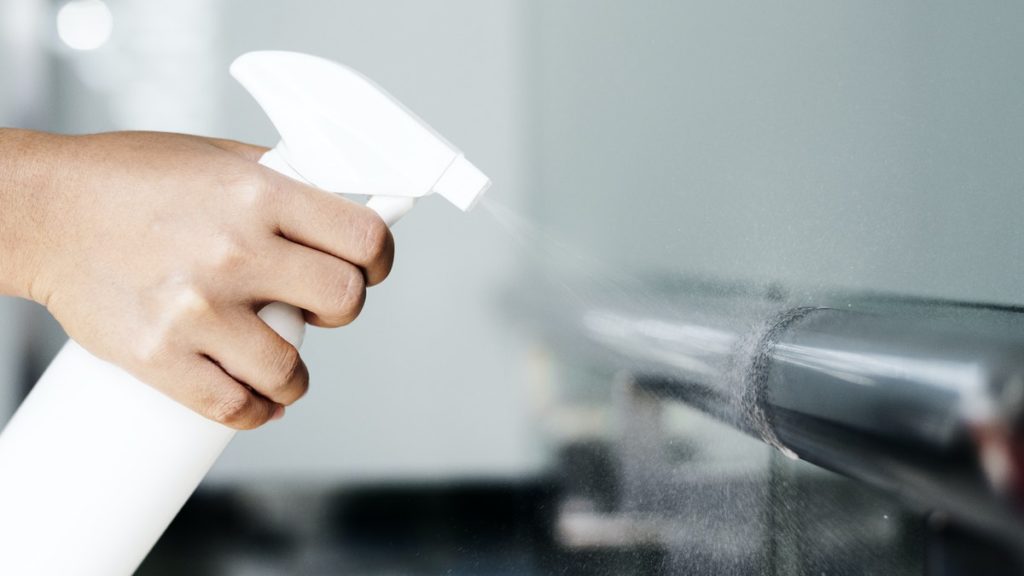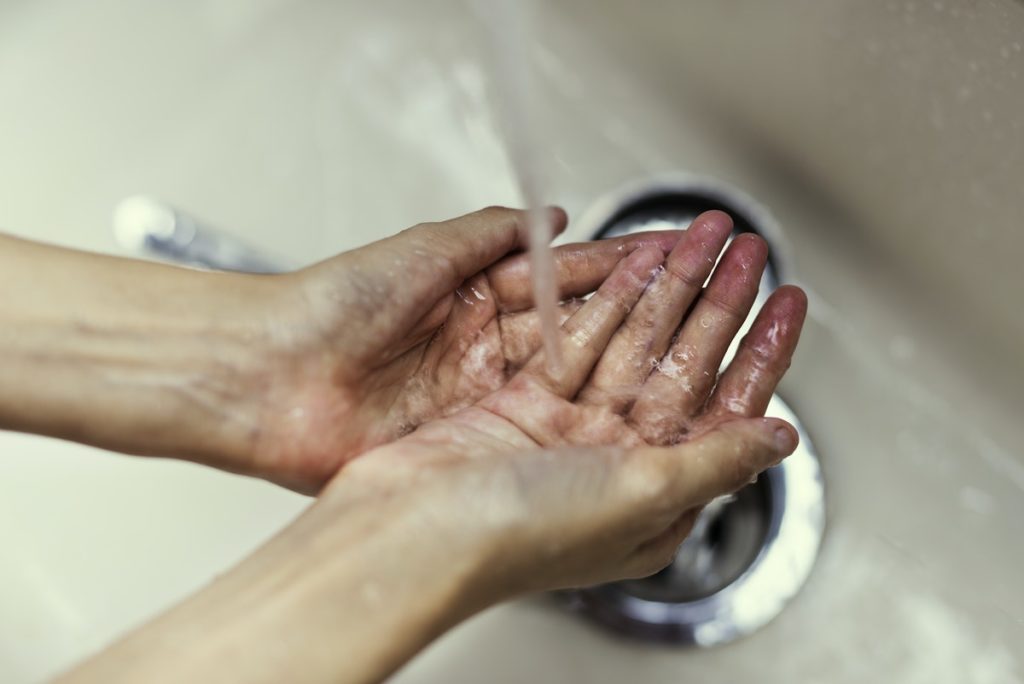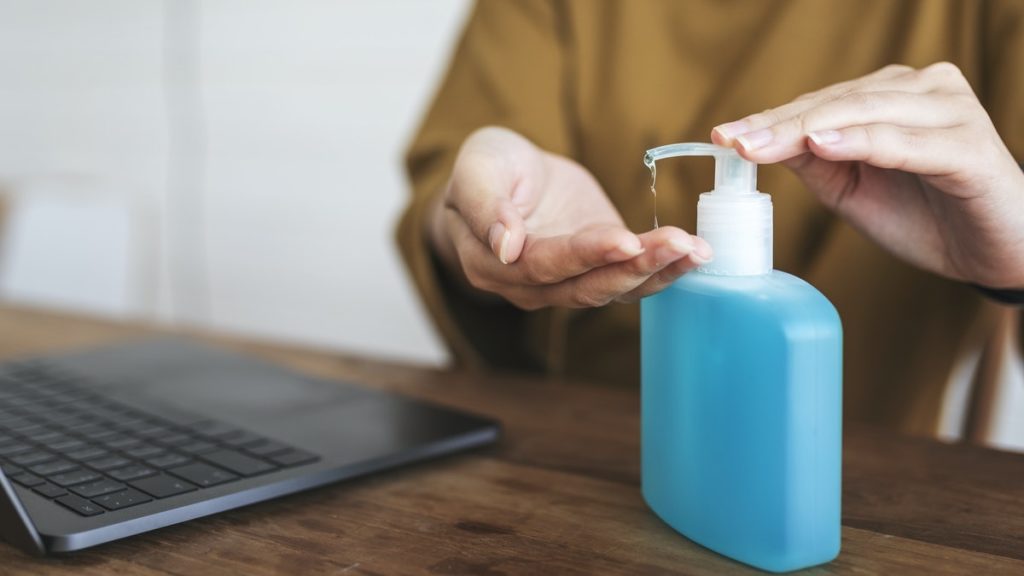COVID-19 advice
The information in this blog is correct as at 30 April 2020. For the most up-to-date Employment Law and Health & Safety advice to support your organisation through the COVID-19 pandemic, visit our Coronavirus Advice Hub, which is updated daily and contains a variety of free guidance notes, letter templates, checklists, risk assessments and more.
Employers are bound by the Health and Safety at Work etc Act 1974 to protect the Health & Safety of employees and others – as far as is reasonable and practical. This duty includes ensuring that workplaces are hygienic and safe.
Workplaces have long been places where germs are shared. Bacteria and viruses can quickly spread from one person to the next – from food poisoning bacteria such as Salmonella, E. coli, Campylobacter and Staphylococcus aureus to viruses like Norovirus, common cold and flu. Now, with the added risk of coronavirus (COVID-19), good workplace hygiene has never been more crucial.
Health hazards can readily establish themselves in poorly maintained and unhygienic environments. As such, employers who don’t pay attention to best practice hygiene put their employees, customers and visitors at risk of infection or contamination.
Individual workplaces will have different hygiene requirements. Certain tasks or industries may also create risks that require additional protection. However, this article discusses some of the key areas that all workplaces should consider in their workplace hygiene efforts.
Ramp up your cleaning regime
It will come as no surprise that a regular cleaning routine is one of the most simple yet effective ways to improve hygiene and prevent the spread of germs and infection. This is especially important during COVID-19.
If possible, hire external cleaners to clean your premises after hours. If using a contractor, you should be clear about the level of cleanliness required, how often cleaning should be done and when premises will be inspected.
A clean workplace is also far nicer to work in and contributes to a sense of professionalism.
Employees should look after their own individual work areas. Work surfaces should be cleaned with an appropriate solution to reduce the possibility of bacterial or viral infection.

Target germ hotspots
Micro-organisms don’t normally multiply on surfaces without help. They rely on people moving around and transferring them from one surface to the next. To fight against this, you’ll need to pay particular attention to “hotspots” – the most frequently-touched workplace surface areas, such as railings, door handles and work equipment.
Before touching equipment, especially equipment that is shared, workers should use a hand sanitiser. Also, think about how dirty hands may be after using equipment. Keep a pack of antimicrobial wipes handy to banish bacteria and viruses. Time taken to clean equipment after use might mean fewer days off work and may even save lives.
Promote personal hygiene
Workers should be encouraged to practice their own good personal hygiene in the workplace. Remind them of the importance of regular handwashing and use of hand sanitisers.
Dos and don’ts of personal hygiene:
Do clean up after yourself
Do regularly wipe down your workstation
Do wash your cups and mugs daily
Do use sanitiser provided for you
Don’t leave the toilet without washing your hands
Encourage these habits by displaying posters in relevant areas throughout the workplace.
Keep kitchens spotless
Kitchens pose a health risk if high cleanliness standards are not maintained. Areas used for preparing food or drinks should be kept scrupulously clean, as should utensils and crockery, and appliances such as fridges, microwaves and toasters.
Again, it’s good practice to involve employees in this collective responsibility and encourage staff to clean as they go.

Ensure restrooms are sanitary and well-stocked
Maintaining clean rest or washrooms is key to a hygienic workplace as these are one of the main epicentres from which germs can spread.
Make sure that restrooms are well stocked with soap, toilet paper and hand-drying equipment and, where possible, wipes and hand sanitiser. Soap and water is generally considered to be more effective than hand sanitiser, but hand sanitisers with an alcohol content of at least 60% can be used if soap isn’t available.
In addition, proper hand-drying is crucial as wet skin helps to spread bacteria. Research suggests that paper towels are more effective as they dry hands more quickly, remove more bacteria and are less likely to lead to cross-contamination.
Consider displaying a notice to prompt workers to practice personal hygiene after using the facilities.

Create a clear hygiene policy
To ensure everyone is involved in maintaining a clean and healthy working environment, staff should be provided with a written hygiene policy. This policy should outline your intentions, the control measures you are taking as an organisation to keep people safe, your expectations of cleanliness, and the role workers play in maintaining high standards.
Workplace hygiene policies should also provide for each employee to clean and maintain their own workstation or work area. The policy could include regular cleaning of surfaces with disinfectant. Policies typically also include keeping areas tidy and free of clutter.
Sensible hygiene policies backed up by regular internal communication will make sure everyone is aware of their responsibilities. Remember, employees who understand why having a hygienic workplace is so important are much more likely to follow your policy guidelines for a clean and safe work environment.
Expert Health & Safety support through COVID-19
COVID-19 is the biggest health and safety challenge most employers will have ever had to face. At Ellis Whittam, we’re helping businesses of all shapes and sizes put appropriate measures in place, and can even support your efforts remotely. From advising on workplace hygiene to creating tailored risk assessments, we provide you with a dedicated Health & Safety specialist for qualified support through COVID-19 and beyond.






